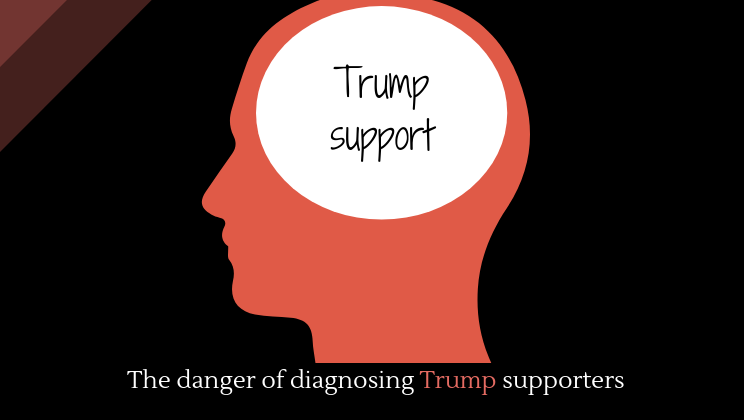The danger of diagnosing Trump supporters
Posted by Josh Taylor / December 7, 2018
Based on the comments to my post about John Oliver’s authoritarianism segment, I apparently need to disclose my own political leanings, otherwise people write off anything even not anti-Trump as pro-Trump.
So, here is my official disclosure. I did not vote for Donald Trump. I do not support Donald Trump. I think that, by and large, his presidency is a hot mess.
That does not mean, however, that I think everyone who supports Trump is a Nazi/fascist/redneck/racist/misogynist/[insert insult here]. Indeed, like most of those readers who do not support Trump, I have family who I love and respect who do support Trump––and I certainly love my family more than I hate a man I’ve never met.
On that note, take a look two Psychology Today articles. The first argues that Trump supporters tend to have one (or more) of five key psychological traits in common. Unsurprisingly, they’re all very negative: 1) Authoritarian Personality Syndrome, 2) social dominance orientation, 3) prejudice, 4) less contact outside their own social groups, 5) relative deprivation.
Another piece suggests that the Dunning-Kruger effect can help explain how Trump was elected. This effect is, according to the article, a cognitive bias “where people with little expertise or ability assume they have superior expertise or ability.” In other words, the entire internet?
There may be something to these “psychological interpretations” of Trump supporters. But I see one major danger here. Treating support of Donald Trump as a psychological condition, risks delegitimizing Trump supporters and pushing them to the absolute fringe of American society by labeling them pathological.
More politics.
Comments are off for this post.